Day 62: Russia warns of World War III as 40 US allies plan to arm Ukraine
Russian Foreign Minister Sergei Lavrov has warned about a "real" danger of World War III breaking out as 40 prepared to meet in Germany to bolster Ukraine's military.
The meeting called by the US at its Ramstein airbase in southwestern Germany is "focused on doing things to generate additional capability and capacity for the Ukrainian forces", said Pentagon chief Lloyd Austin following his visit Sunday to Kiev.
Speaking to Russian media, Lavrov accused NATO of fighting a proxy war by supplying military aid to Ukraine.
“NATO, in essence, is engaged in a war with Russia through a proxy and is arming that proxy. War means war,” Lavrov said.
He warned that the risks of nuclear conflict are now “considerable”.
When asked about the importance of avoiding a third world war, Lavrov said: “I would not want to elevate those risks artificially. Many would like that. The danger is serious, real. And we must not underestimate it.”
The top Russian diplomat said peace talks with Ukraine will continue, expressing confidence that the conflict will end with the signing of an accord.
However, he blasted Kiev’s approach to floundering peace talks. Lavrov also accused Ukrainian President Volodymyr Zelensky of “pretending” to negotiate, calling him a “good actor”.
Western officials have become concerned by the increasing emphasis Moscow puts on its nuclear arsenal. Ukraine’s foreign minister, Dmytro Kuleba, said it showed Moscow had lost its “last hope to scare the world off supporting Ukraine”.
Lavrov's warning came after Austin and US Secretary of State Antony Blinken paid a top secret visit to Kiev on Sunday and promised to supply more arms to Ukraine.
On returning from the trip, Austin told journalists in Poland that Ukraine can win the war against Russia if it has the right equipment.
"We believe that we can win, they can win if they have the right equipment, the right support," he said.
The US is already the biggest supplier of international military aid to Ukraine. And Austin pledged to do "everything that we can to get them the types of support, the types of artillery and munitions that will be effective in this stage of the fight".
Kiev is seeking heavy artillery and tanks to repel Russian forces trying to seize complete control of its vast southern plains and the eastern region of Donbass.
Western arms fueling tensions
At the invitation of the US, 40 countries – including the traditionally neutral countries of Sweden and Finland – were to meet in Germany Tuesday to discuss providing Ukraine with scores of long-range and heavy weapons.
After returning from Kiev, Austin told journalists in Poland on Monday that sending artillery to Ukraine aims to degrade Russian forces over the longer term.
Mike Jacobson, a US civilian expert in field artillery, predicted that western military aid to Ukraine would lead to a “war of attrition” in which Ukraine could halt Russian advances.
According to a Pentagon official, at least 18 of the 90 towed artillery pieces Washington promised in the past two weeks have already been delivered to Ukrainian forces, and more are being rushed this week.
In addition, Washington is supplying nearly 200,000 rounds of howitzer ammunition and is arranging for ammunition supplies for the Russian-made artillery that Ukraine forces currently operate.
Joining the support club for Ukraine, France is sending its ultra-advanced Caesar mobile howitzer, and the Czech Republic is delivering its older self-propelled howitzers.
Canada too is sending howitzers and advanced, guided “Excalibur” shells that can travel more than 40 kilometers and deliver munitions precisely on target.
The UK, on the other side, said it will send Stormer armored vehicles carrying anti-missile launchers to Kiev. British defense secretary Ben Wallace said the country is also looking to provide Ukraine with long-range artillery and ammunition as well as anti-ship missiles.
Among the 40 invited countries are not only Washington's European allies, but also countries further afield like Japan or Australia.
Finland and Sweden, traditionally neutral countries now looking at joining NATO, are also among countries at the talks.
Just ahead of the talks, Germany signaled that it was ready to authorize the deliveries of tanks to Ukraine, in what would be a major switch in Berlin's cautious policy vis-a-vis military equipment supply for Kiev.
Speaking in India on Monday, the head of the EU's executive arm, Ursula von der Leyen, defended the Western policy of pouring hundreds of millions of Euros worth of deadly weapons into Ukraine.
Last week, a number of legislators in the European Parliament questioned the wisdom of pumping lethal weapons into Ukraine.
The European Commission insists that arming Ukraine is not about prolonging the conflict.
However, a growing number of civil society organizations and lawmakers in the European countries believe the West should be prioritizing peace talks over arms delivery.
Moscow has warned Western countries of the unpredictable consequences for arming Ukraine.
Moscow disrupts arms supplies from foreign countries
The Russian defense ministry said its missiles have destroyed six railway facilities that were used to deliver foreign weapons to Ukrainian forces in the Donbas region.
The head of Ukraine Railways, Alexander Kamyshin, had earlier announced the attacks, accusing Moscow’s army of “systematically” destroying railway infrastructure.
Ukrainian officials said Russian airstrikes hit railway stations in the country’s western and central regions, killing at least five people and injuring 18 others.
Ukraine's military command says Moscow is trying to bomb railway infrastructures in order to disrupt arms supplies from foreign countries.
On Tuesday, Russia said its forces pummeled Ukraine with missiles, aircraft and artillery overnight, killing at least 560 Ukrainian fighters and destroying dozens of armored vehicles, rocket systems and other military equipment.
Russian aircraft struck 87 different military installations while rockets and artillery rained down on Ukrainian positions, destroying S-300 missile systems, a Tochka U short-range ballistic missile system, BUK-M1 and Osa-AKM missile systems.
"About 500 enemy personnel, 59 armored vehicles, artillery guns and cars were destroyed, as well as more than 60 militants of the nationalist 'Donbas' group in the Donetsk People's Republic," the defense ministry said.
The Russian-backed separatist leader of the Ukrainian breakaway region of Donetsk said that Moscow should launch the next stage of its military campaign in Ukraine after reaching the region's frontiers.
US to impose more sanctions
White House press secretary Jen Psaki on Monday said the US government is set to impose a new round of economic sanctions against Russia, stressing that “no one is safe from our sanctions”.
Moscow has faced unprecedented sanctions from the West over its military operation in Ukraine, but that has not deterred it from abandoning its operation.
Last week, the Biden administration slapped sanctions against a Russian commercial bank, a Russian oligarch, and Russia’s virtual-currency mining industry.
It came on the second day of Russia’s military operation in the Donbas region of southeastern Ukraine.
The military operation was announced on February 24, which Russian President Vladimir Putin said was aimed at “demilitarization” of the Donetsk and Lugansk regions in eastern Ukraine.
Putin said the mission was aimed at “defending people who for eight years are suffering persecution and genocide by the Kiev regime.”
VIDEO | Press TV's news headlines
VIDEO | The reckless US
Qalibaf: Recent unrest a 'complementary link' in 12-day war against Iran
Ex-Israeli war minister: Iranian missiles inflicted heavy losses
Trump launches 'Board of Peace' seen as bid to control Gaza
Senior general vows swift response to any aggression on Iran
US federal immigration agents detain 5-year-old boy in Minnesota
Trump used presidency to pocket $1.4 billion in first year back in office: Report


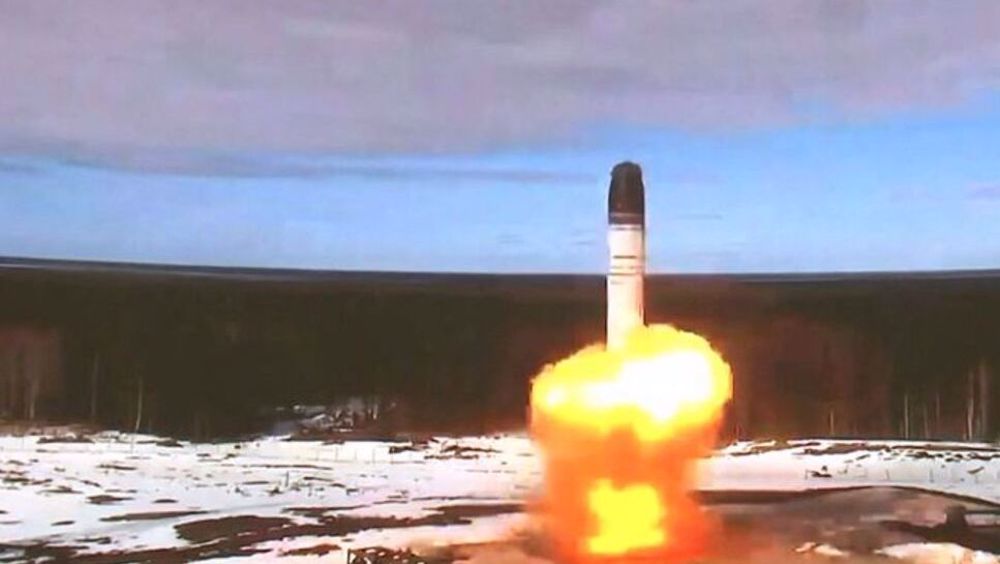
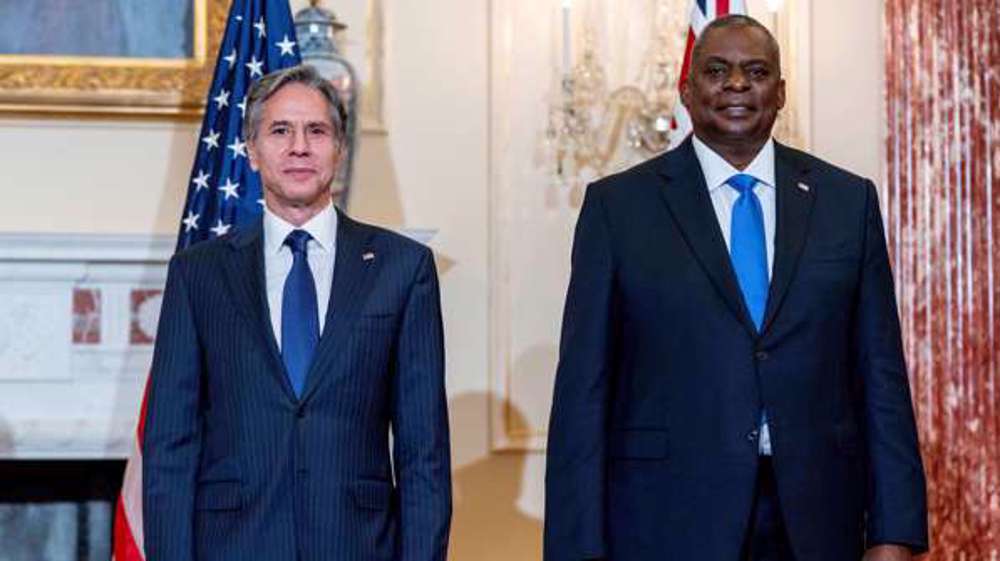
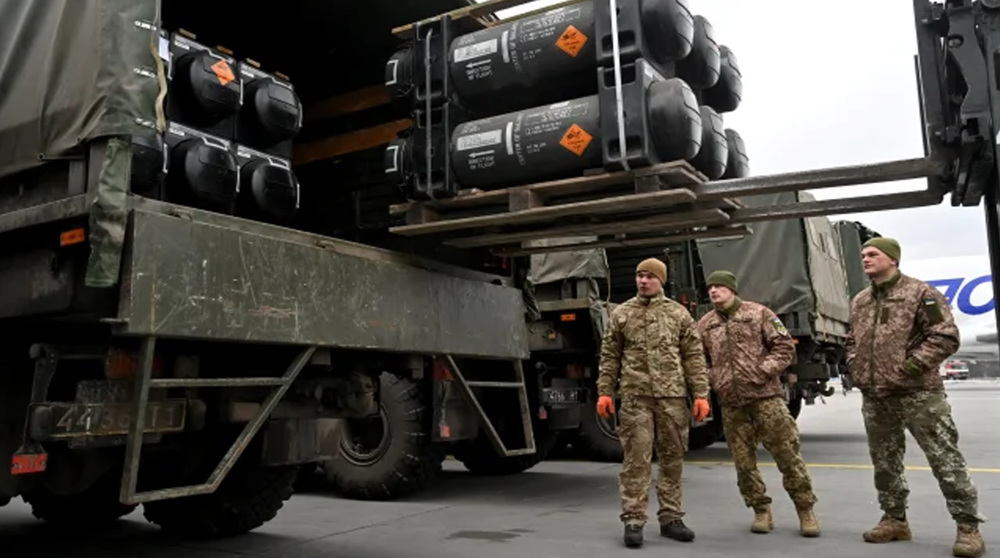
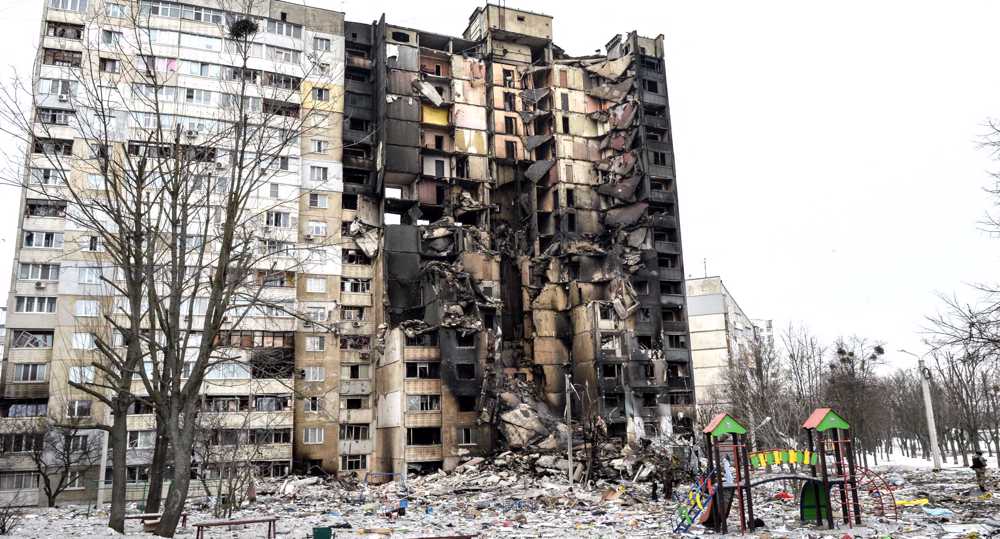
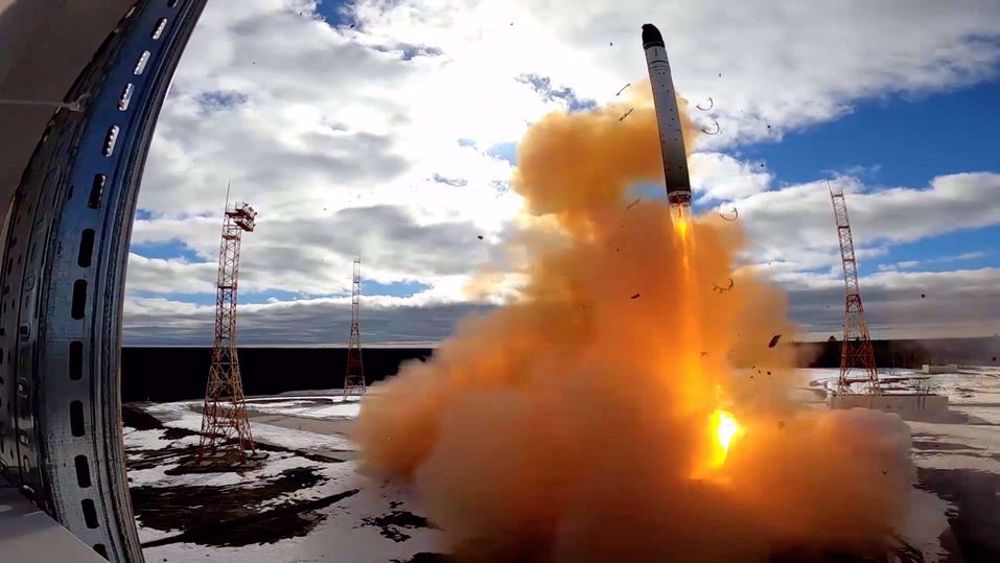

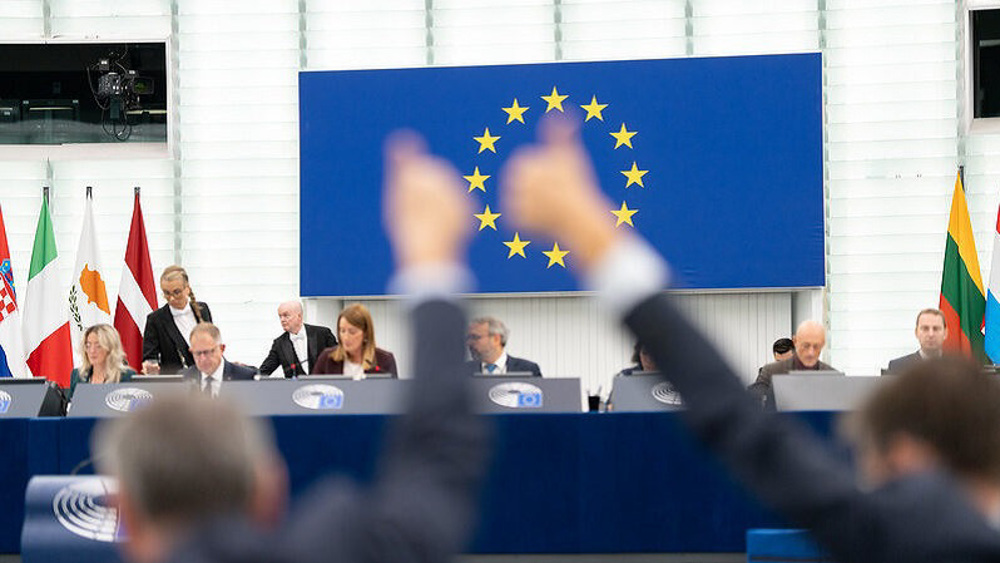




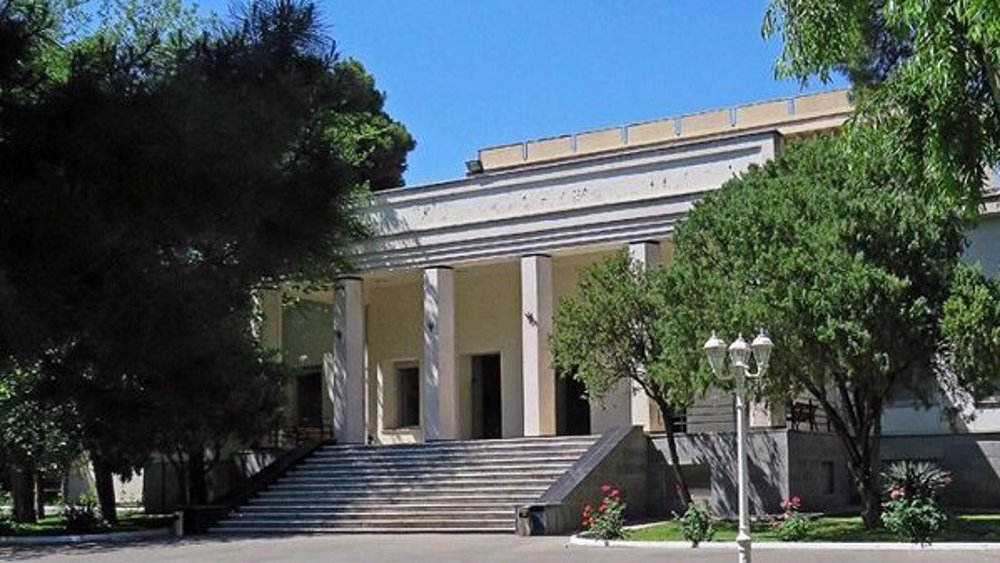

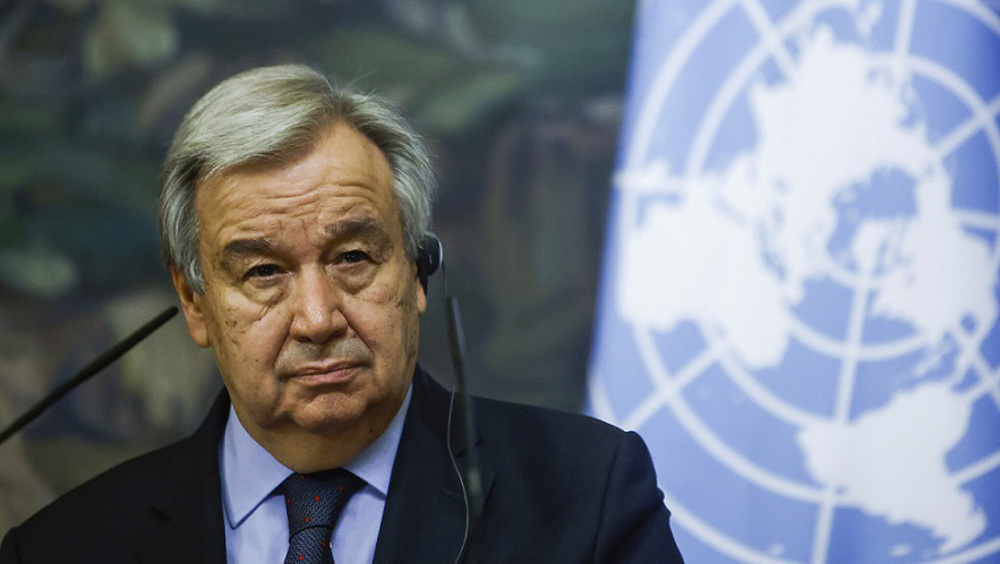
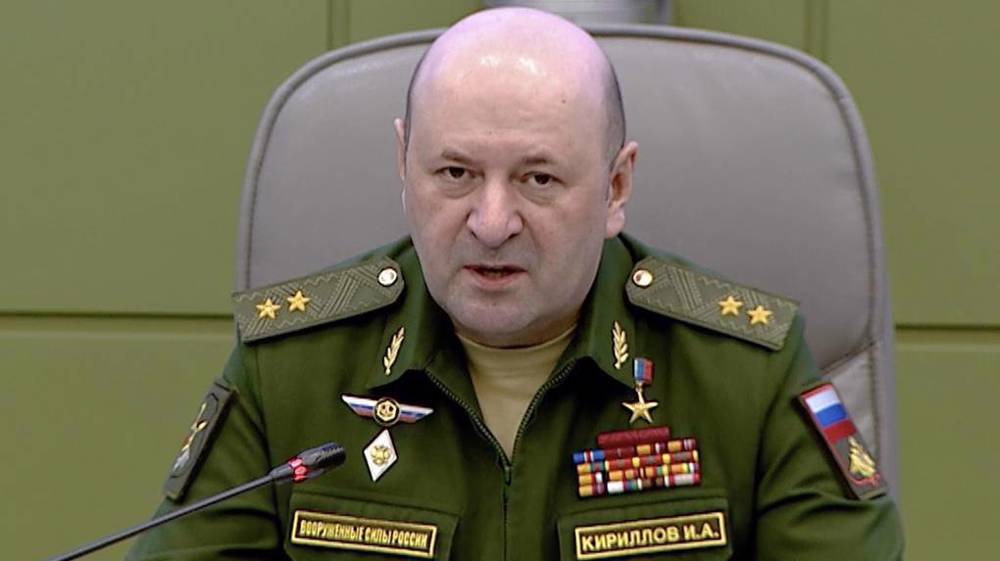

 This makes it easy to access the Press TV website
This makes it easy to access the Press TV website